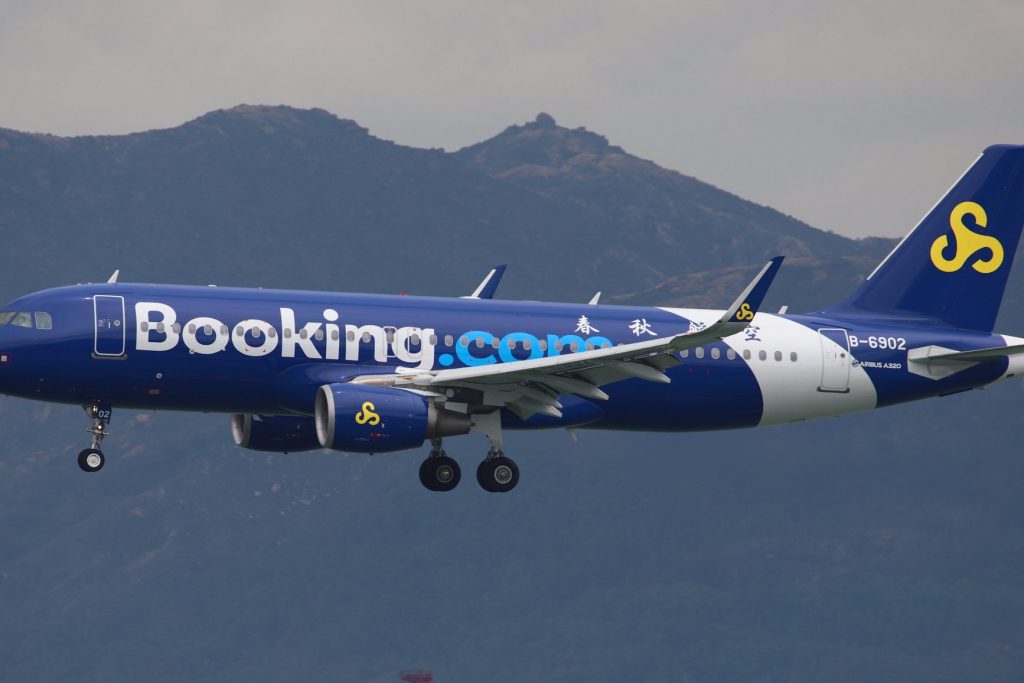Skift Take
This is might be called Booking Holdings statement of objections to the EC’s statement of objections to the eTraveli deal. This dust-up is heading for the courts.
The European Commission has all but officially blocked Booking Holding’s almost 2-year-old pending acquisition of Swedish flight-tech company eTraveli Group, and Booking confidentially sent a memo to national competition authorities detailing why it thinks the commission’s arguments are flawed.
Skift obtained the confidential document dated September 8. The commission’s official decision on whether to block the acquisition is slated to be made before the end of the month.
“Despite strongly disagreeing with the EC’s case and the selective and misleading use of facts, the Parties submitted an effective and transformational quasi-structural remedy to address the EC’s Theory of Harm,” and then enhanced it based on feedback, the document said.
A spokesperson for the commission declined to comment for this story.
On August 31, the commission’s Department of Competition communicated to Booking and eTraveli Group that it would recommend that the deal be blocked.
Booking is pursuing the acquisition primarily for how it might benefit its fledgling flights business. One of the commission’s main arguments is that the deal would increase Booking.com’s hotel market share in Europe.
The commission’s theory is that Booking.com’s flights customers would book more hotels from the company when presented with that option.
Booking.com proposed a remedy: It would display a carousel on its web pages and apps with hotel offers from rival online travel agencies, including smaller ones.
It would be a “non-divestiture” remedy because Booking.com wouldn’t have to sell one of its brands like Kayak, for example. Booking.com argued it was aligned with the commission’s non-divestiture remedies in the Microsoft-Activision case.
In the document sent to national competition authorities in Europe, Booking argued that the proposed remedy would “have a transformational effect on competition in the sector,” a statement that is — at best — debatable.
Booking said decision to block eTraveli deal would leave its competitors without the option to use its own platform to market hotels to Booking’s customers “and without access to this pro-competitive remedy.”
In other objections to the commission’s reasoning, Booking said in the document:
- Although the merger would marry two non-competing online travel agencies in adjacent markets that offer similar inventory, the commission gives short shrift to “all existing legal precedent.”
- The commission’s draft decision estimated that Booking.com’s hotel market share would increase 1-3% while Booking and eTraveli Group estimated their combination would gain “a fraction of 1%.” Booking added in its brief: “It is implausible to suggest that such a small increase could result in a significant impediment to effective competition in a market where on a proper analysis Booking.com has less than a 50% share.”
- The commission’s market test of the transaction and reasoning is “fundamentally flawed,” Booking said, because it didn’t take into account that Booking is committed to growing its flights business without or without eTraveli. Booking.com for years offered accommodations and no flights, but began building a flights offering in 2019 with eTraveli as a partner.
- “The Draft Decision creates a dangerous precedent allowing the EC to prohibit conglomerate mergers that promote consumer welfare and competition,” Booking’s memo said. It cited already strong competition in its European flights business from eDreams, Expedia and Lastminute.com, all of which likewise offer hotels.
- The commission mischaracterizes flights as a significant acquisition channel for hotels. Booking.com’s flights business generated merely 0.4% of the company’s hotel business, Booking stated.
This plea to the European Union’s competition authorities is unlikely to sway the decision to block the deal.
A Booking Holdings spokesperson said that if the commission does block the acquisition, the company would mount a legal challenge. Either way, the company is committed to building its flights business.
The Daily Newsletter
Our daily coverage of the global travel industry. Written by editors and analysts from across Skift’s brands.
Have a confidential tip for Skift? Get in touch
Tags: antitrust, booking holdings, booking.com, edreams, etraveli, european commission, european union, expedia, lastminute.com, m&a, mergers, online travel newsletter
Photo credit: Pictured is a Spring Airlines A320 bedecked as Booking.com as seen on July 7, 2018. Kwok Ho Eddie Wong / Flickr.com
